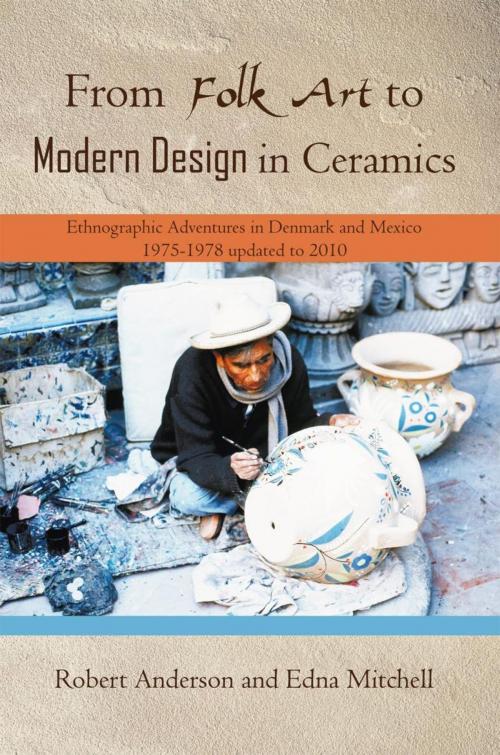From Folk Art to Modern Design in Ceramics
Ethnographic Adventures in Denmark and Mexico 1975-1978 Updated 2010
Nonfiction, Art & Architecture, General Art, Folk Art| Author: | Edna Mitchell, Robert Anderson | ISBN: | 9781450267434 |
| Publisher: | iUniverse | Publication: | December 16, 2010 |
| Imprint: | iUniverse | Language: | English |
| Author: | Edna Mitchell, Robert Anderson |
| ISBN: | 9781450267434 |
| Publisher: | iUniverse |
| Publication: | December 16, 2010 |
| Imprint: | iUniverse |
| Language: | English |
From the dusty workshops of village potters to the pristine assembly lines of modern factories; from the makers of pottery to the producers of porcelain in selected areas of Mexico and Denmark, the authors observed, interviewed, and photographed ceramic artists at their work. The result is a story of persistence, inspiration, collaboration and intrigue, success and failure, along with individual eccentricities in the process of making ceramic art for an international market. The story is not only that of the potters wheel, but of the wheel of time over which the lowly village potter evolves as professional artist who eventually, in some instances, rejects making corporate porcelain in favor of returning to clay and kiln. The Mexican communities are near Guadalajara. The Danish settings include the towns of Naestved, Srring, the island of Bornholm and, in Copenhagen, the porcelain giants Royal Copenhagen and Bing and Grndahl contrasting large scale corporations with small pottery factories. Researched in the 1970s, the abandoned manuscript, recently rediscovered, appears here as written then with current material added to inform and update the historical ethnography, providing a rare opportunity to follow up on people and predictions, after thirty years, to identify change, decay and fulfillment.
From the dusty workshops of village potters to the pristine assembly lines of modern factories; from the makers of pottery to the producers of porcelain in selected areas of Mexico and Denmark, the authors observed, interviewed, and photographed ceramic artists at their work. The result is a story of persistence, inspiration, collaboration and intrigue, success and failure, along with individual eccentricities in the process of making ceramic art for an international market. The story is not only that of the potters wheel, but of the wheel of time over which the lowly village potter evolves as professional artist who eventually, in some instances, rejects making corporate porcelain in favor of returning to clay and kiln. The Mexican communities are near Guadalajara. The Danish settings include the towns of Naestved, Srring, the island of Bornholm and, in Copenhagen, the porcelain giants Royal Copenhagen and Bing and Grndahl contrasting large scale corporations with small pottery factories. Researched in the 1970s, the abandoned manuscript, recently rediscovered, appears here as written then with current material added to inform and update the historical ethnography, providing a rare opportunity to follow up on people and predictions, after thirty years, to identify change, decay and fulfillment.















